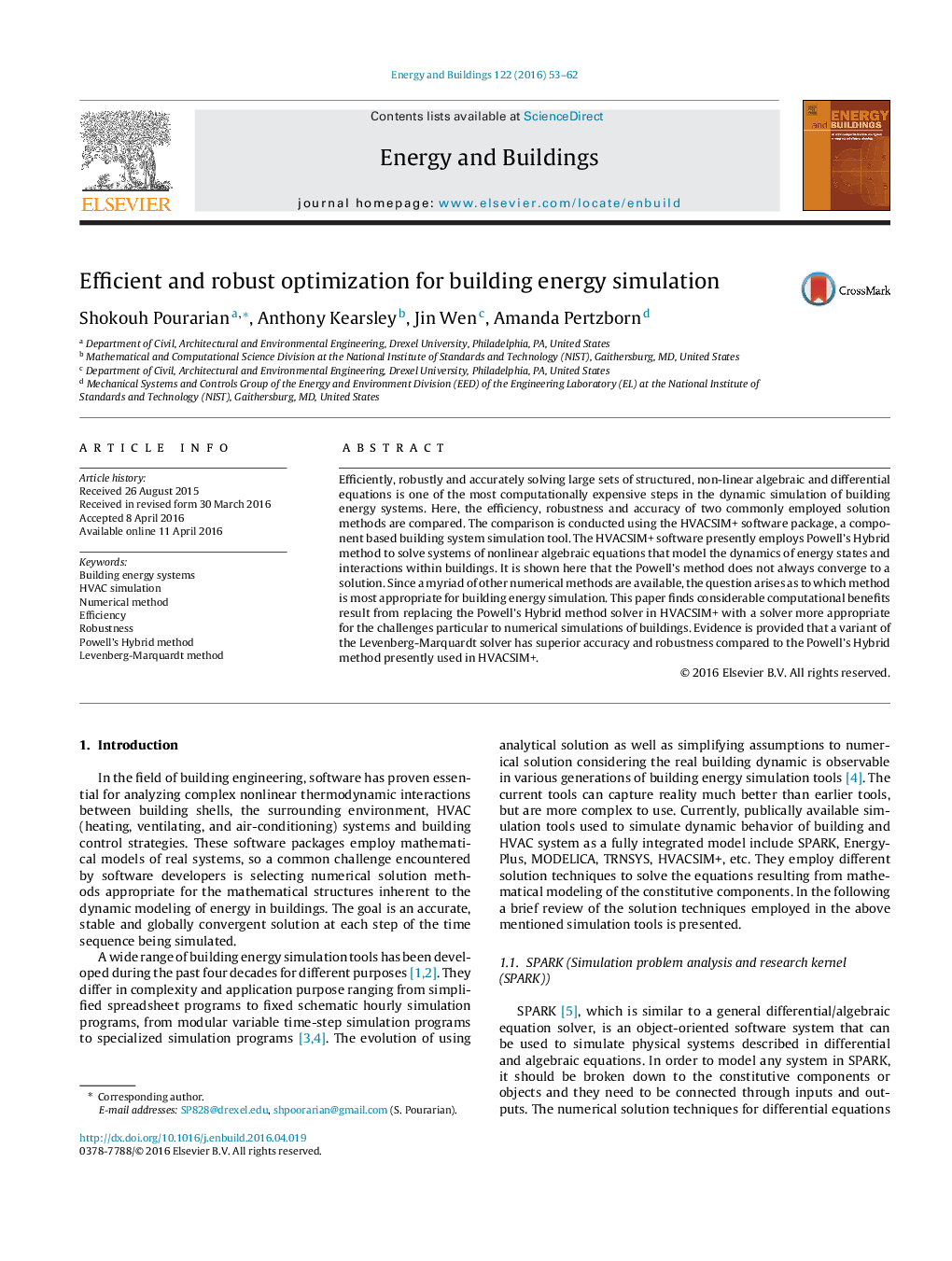| کد مقاله | کد نشریه | سال انتشار | مقاله انگلیسی | نسخه تمام متن |
|---|---|---|---|---|
| 262064 | 504009 | 2016 | 10 صفحه PDF | دانلود رایگان |
• The efficiency, accuracy and robustness of two commonly employed solution methods in solving the non-linear algebraic equations in the dynamic simulation of building energy systems are compared. The comparison was accomplished for Powell’s Hybrid method and Levenberg-Marquardt method.
• Powell’s Hybrid method, employed in HVACSIM+, demonstrated failure to reach to a converged solution for some simulation cases. Replacing Powell’s hybrid method with Levenberg-Marquardt method resulted in considerable computational benefits including robustness and accuracy of the final solution.
• The case study is a fan coil unit interacting with a building zone which is simulated in HVACSIM+. The simulation results demonstrate the superiority of Levenberg-Marquardt method over Powell’s Hybrid method quantitatively. Although Levenberg-Marquardt method is more computationally expensive.
Efficiently, robustly and accurately solving large sets of structured, non-linear algebraic and differential equations is one of the most computationally expensive steps in the dynamic simulation of building energy systems. Here, the efficiency, robustness and accuracy of two commonly employed solution methods are compared. The comparison is conducted using the HVACSIM+ software package, a component based building system simulation tool. The HVACSIM+ software presently employs Powell’s Hybrid method to solve systems of nonlinear algebraic equations that model the dynamics of energy states and interactions within buildings. It is shown here that the Powell’s method does not always converge to a solution. Since a myriad of other numerical methods are available, the question arises as to which method is most appropriate for building energy simulation. This paper finds considerable computational benefits result from replacing the Powell’s Hybrid method solver in HVACSIM+ with a solver more appropriate for the challenges particular to numerical simulations of buildings. Evidence is provided that a variant of the Levenberg-Marquardt solver has superior accuracy and robustness compared to the Powell’s Hybrid method presently used in HVACSIM+.
Journal: Energy and Buildings - Volume 122, 15 June 2016, Pages 53–62
